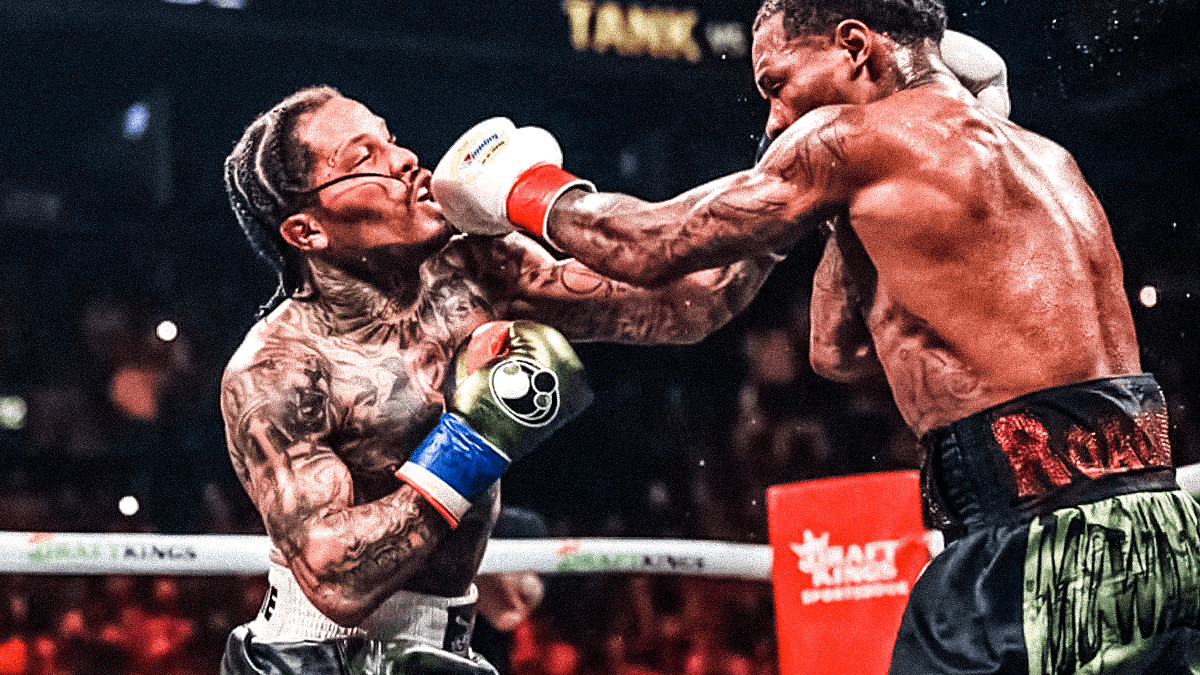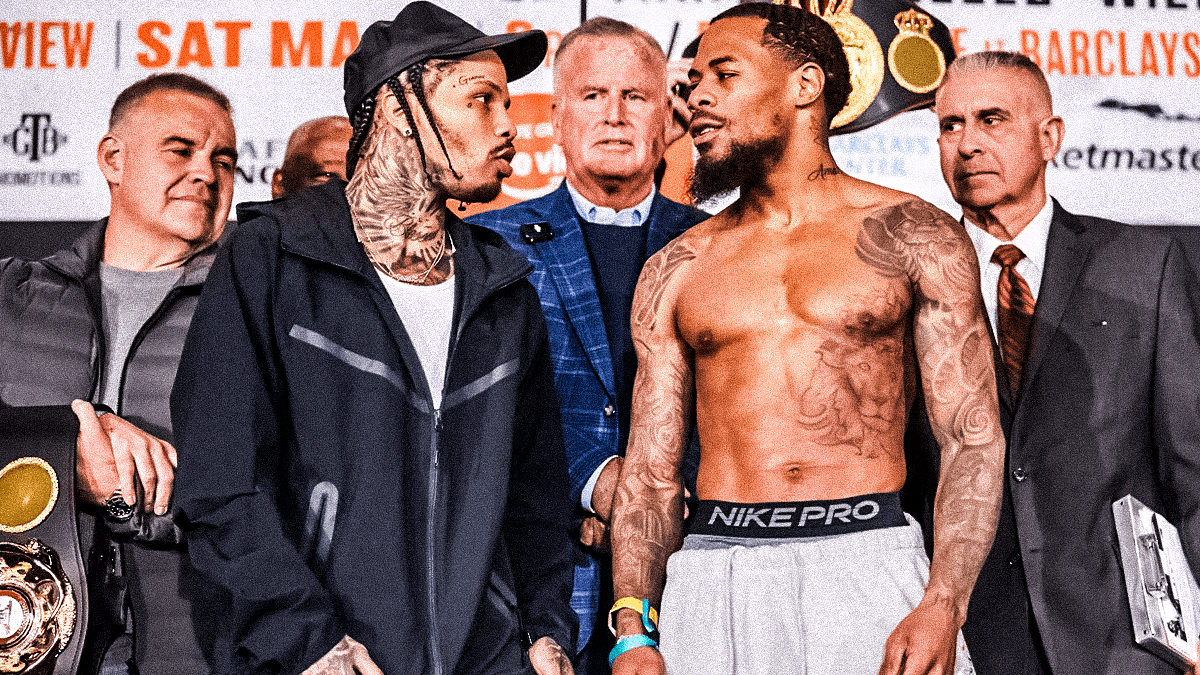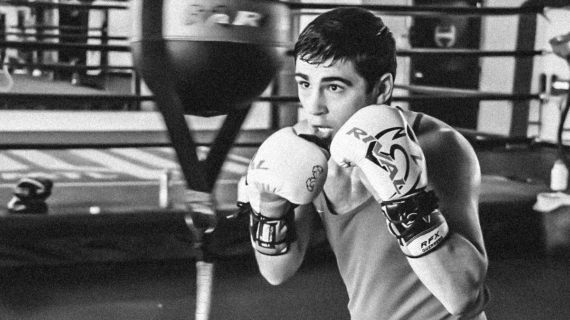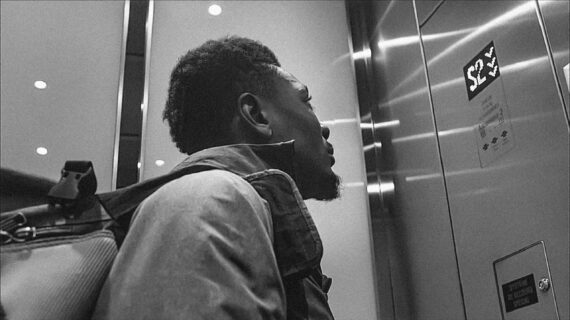Photos: Esther Lin / PBC – Should Gervonta “Tank” Davis (30-0-1, 28 KOs) have suffered his first career loss?
On March 1st, Gervonta Davis certainly wasn’t expecting a tough fight—let alone a fall from grace.
He was the overwhelming favorite, and “Tank” should have had little trouble figuring out Lamont Roach’s style. So, what happened? It seems clear that this clash of styles did not work in the champion’s favor.
Davis’s Counter-Attack Looked Shaken
You may be familiar with the phrase: “counter the counterpuncher.” In this case, that meant Roach’s team likely aimed not just to attack but to force Davis into throwing punches so they could counter him in return.
The least we can say is that “Tank” struggled to showcase his full skill set as a counterpuncher. Instead, he appeared somewhat unsettled against an opponent who was much more in control.
Still, “Tank” managed to escape with a majority draw. If he got away with it, it’s likely because the judges considered that his power helped make up for his low punch volume.
Either way, his poor performance disappointed fans. And as if that weren’t enough, another incident in the ninth round will continue to haunt him for a long time.

“Tank” Took a Knee, But the Referee Didn’t Count It as a Knockdown
In boxing, a knockdown typically results in a 10-8 score in favor of the opponent for that round. A knockdown could have had serious consequences for Davis.
Would this fight have turned into a win for Roach if a knockdown had been scored? Many commentators believe so after reviewing the judges’ scorecards.
However, such an outcome would only have been possible if the knockdown had no further impact on the fight’s progression. The real question is: would an eight-count have awakened “Tank”? I doubt it, but who knows?
Let’s focus on the key issue. Many fans were outraged at referee Steve Willis for ignoring the knockdown. Their argument boils down to this: the referee failed in his duty when Davis took a knee. The knockdown should have been automatically counted.

What Do the Rules Say?
To settle a controversy, we must first consult the rules. Regulations usually outline the referee’s obligations. In this case, the ABC Regulatory Guidelines and Rules state:
“It shall be ruled a knockdown when, as a result of a legal blow or series of legal blows, a contestant:
1. Touches the floor with any part of the body other than his/her feet;
2. …”
The phrase “as a result of” implies that a knockdown can only be counted if it results from a legal punch. So, for the referee to rule it a knockdown, there must be a cause-and-effect relationship between the knee touching the ground and a punch from the opponent.
That was clearly not the case here.
Even Roach, while arguing that the knockdown should have been counted, admitted that Davis took a knee because grease was burning his eyes.
Let’s take this further: if the same incident had happened in Quebec, would the conclusion be the same? Here’s what Quebec’s combat sports regulations state:
S-3.1, r. 11 – Combat Sports Regulation:
105 A competitor must be declared “knocked down” when, as a result of their opponent’s action:
1° Any part of their body, other than their feet, touches the canvas following a legal punch from the opponent;
After reviewing multiple regulations on knockdowns, I see that the requirement for a cause-and-effect relationship is consistent. It seems clear that referee Steve Willis did nothing wrong in terms of the knockdown itself.
That said, the debate isn’t over. We still need to analyze “Tank’s” actions from the moment his vision was impaired.

An Unusual Reaction
In the ninth round, after taking a knee, Davis didn’t wait for the referee to start a count. He quickly turned his back on the referee and walked to his corner to have his face wiped.
This kind of behavior might be acceptable in sparring but not in a real fight. Davis should have addressed the referee first to get permission to seek assistance from his corner or the ringside doctor.
Why wasn’t “Tank’s” behavior reprimanded by the referee? A lesser-known fighter likely wouldn’t have been excused so easily.
Ultimately, this comes down to the referee’s judgment. In regulatory terms, this is known as “discretionary power,” which referees must apply in many cases. The rules allow them some freedom in interpreting situations like this one.
Like many fans, I don’t always readily accept a referee’s or judge’s decision. But I have to make peace with the discretionary aspects of their calls. I remind myself that such discretion is necessary in an imperfect system.
However, given the extent of this discretionary power, you and I are not left powerless—we have the right to free speech. And that right is just as valuable as any other freedom or privilege.




